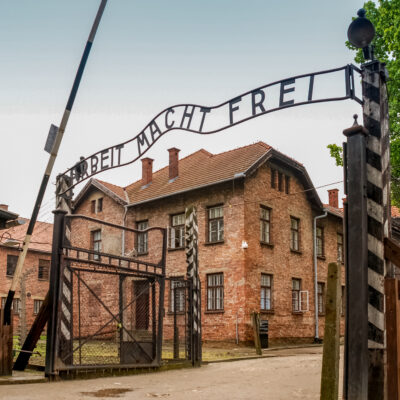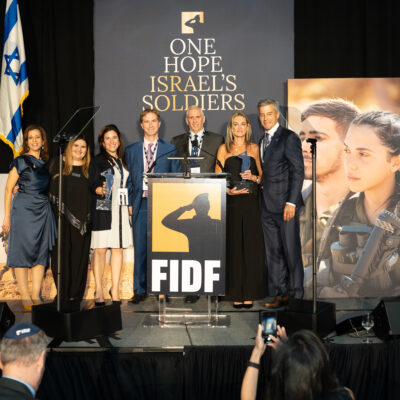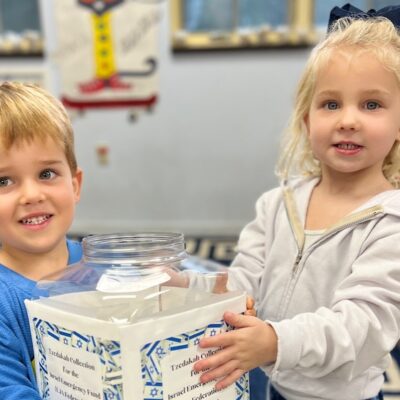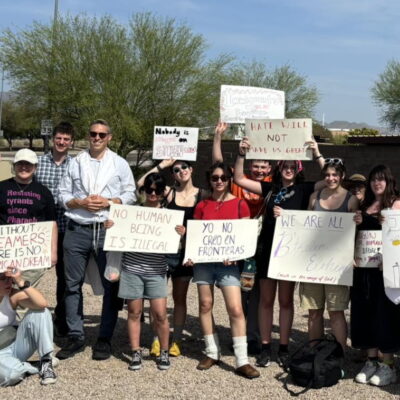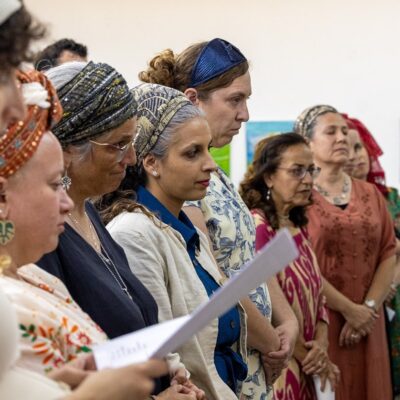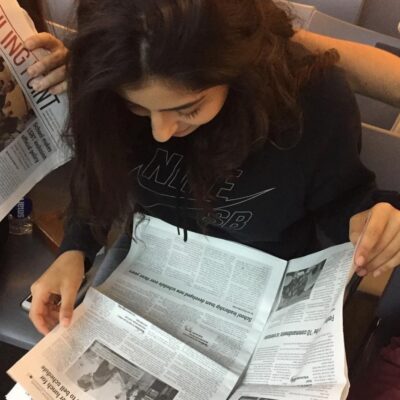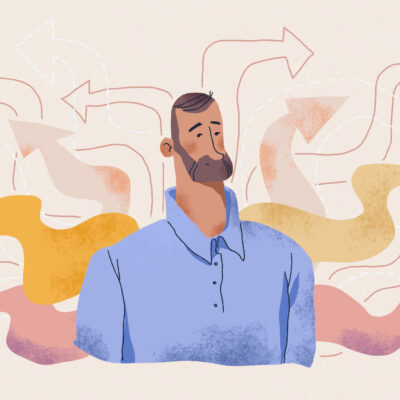Ray of Hope
Shine A Light back for a third year of ‘necessary, urgent’ discussions about antisemitism
Backed by a number of foundations and donors and with an increased budget, the organization is rolling out a number of new initiatives to combat rising antisemitism in the U.S.

Screenshot/YouTube
Tea Leoni, Rabbi Angela Warnick Buchdahl, Hannah Bronfman and Elon Gold discussing antisemitism in a video, 'Breaking Bread,' created by Shine A Light.
Tearing into a shiny braided challah, actress Tea Leoni, comedian Elon Gold, heiress and activist Hannah Bronfman and Rabbi Angela Warnick Buchdahl, senior rabbi of New York City’s Central Synagogue, sit around a table talking about the joys of being Jewish, apparently so convincingly that at one point Leoni, who is Christian, interjected, “I want to be Jewish,” to which Buchdahl quipped, “We’ll take you!”
Turning to the topic of antisemitism, Gold recounted a conversation with his teenage son, who “literally out of nowhere just said, ‘Now I see how the Holocaust happened.’ And I’m like, whoa, because he feels that he is hated by everyone just scrolling through social media.”
Bronfman, the daughter of Edgar Bronfman Jr. and actress Sherri Brewer, spoke about her experiences as a Black Jewish woman. “I grew up with a very strong Black mother, who definitely rooted my identity in some of her cultural experiences,” Bronfman said.
Buchdahl, who is Asian and Jewish, added, “When hatred of Jews rises, hate rises everywhere.”
This is the new video, “Breaking Bread,” an effort by Shine A Light, which partners with dozens of organizations and companies each year to raise awareness of antisemitism, work that has taken on fresh urgency since Oct. 7.
By literally breaking bread together, the initiative’s leadership says, people can learn more about each other and build bridges across differences.
Other projects of Shine A Light include a list of resources provided by the initiative’s partner organizations, a guide about talking to young children about a Shine A Light Shabbat conversation guide and a workplace toolkit — published within 48 hours of the Oct. 7 attacks — to help companies create space for Jewish employees who may need support in the aftermath. There have been thousands of downloads and engagements and many requests for training and facilitation, she added.
“It’s been difficult for your average person in America to really understand how and what the Jewish community is feeling right now,” said Carly Maisel, global CEO of Kirsh Philanthropies and a representative of Shine A Light, adding that it makes this work “feel so much more necessary, urgent and challenging.”
This year’s budget for Shine A Light is in the $4 million-$5 million range, Maisel said, an increase from last year’s $3 million-$4 million. Cookbook author Jake Cohen, social media influencer Montana Tucker and songwriter Dara Starr Tucker, among other celebrities, have signed on to various initiatives under the Shine A Light umbrella this year.
In addition to Kirsh Philanthropies, the organization’s list of partners also includes the Adnim Foundation, Charles and Lynn Schusterman Family Philanthropies, the Jane and Daniel Och Family Foundation, the Jeffrey M. Talpins Foundation, The Marcus Foundation, the Margaret and Daniel Loeb Foundation, The Paul E. Singer Foundation, the Rowan Family Foundation, The Russell Berrie Foundation, The Tepper Foundation and UJA-Federation of New York. Shine A Light also has a microgrants pool of nearly $500,000 for events, activations or campaigns that, in some way, connect to the White House’s national strategy to fight antisemitism. It is also developing its relationship with historically Black colleges and universities and with Chabad.
The platform has also identified several communities as “spotlight cities,” where antisemitism will be addressed through programming by partnering with local governance, community groups and interfaith leaders. Atlanta, for example, is programming several December events in collaboration with the National Center for Civil and Human Rights, and Kansas City, Kan., just held a unity event in celebration of Hanukkah as well as to thank law enforcement and local government for fighting antisemitism.
Last year, Shine A Light worked with people in the gaming community — including many teens — to fight toxic behaviors. That relationship has deepened this year, with a representative from Kirsh Philanthropies, attending The Game Awards in Los Angeles last week. The awards and related events gave Shine A Light the opportunity to engage with industry leaders, gamers, game developers and executives to further emphasize the need to address antisemitism and hate within gaming. Shine A Light has also been hosting regular streaming events about gaming and antisemitism, beginning Nov. 18 and running through Dec. 23.
This year, the Shine A Light platform suggests two free games: “The Light In The Darkness,” which tells the story of a Polish Jewish family in France during the Holocaust, and “Voices Of The Forgotten,” a virtual Holocaust museum inside the game Fortnite. A microgrant from Shine A Light funded the development of an iOS version of “The Light In The Darkness,” which will launch later this month.
Initiatives are usually planned to coincide with Hanukkah, but the hope and intention, Maisel said, is that Shine A Light’s efforts continue throughout the year.
“Shine A Light is always a catalyst,” Maisel said, “kickstarting new programming, encouraging organizations to think about what their year ahead looks like, encouraging corporations to sign up for antisemitism training; it’s all about using the moment to come together to then encourage more deep and meaningful work.” All of Shine A Light’s programs have a plan for follow-up or longer-term engagement, she added.
Breaking Bread represents an effort to bring together people of varying experiences to engage in thoughtful dialogue, Maisel said, and “take people on a journey.”
“The idea of coming together over a meal to physically or metaphorically break bread lends itself to the opportunity to have an honest, vulnerable conversation,” Maisel said, adding that the initial conversation depicted in the video “focused on the power of storytelling and the importance of bringing your lived experience to a discussion.” Shine A Light also produced conversation guides, she said, “to help people navigate these fraught issues.”
Maisel added that the organization intentionally included a diverse panel in order to show how the current moment is affecting different parts of the Jewish community and non-Jews, in the case of Leoni.

